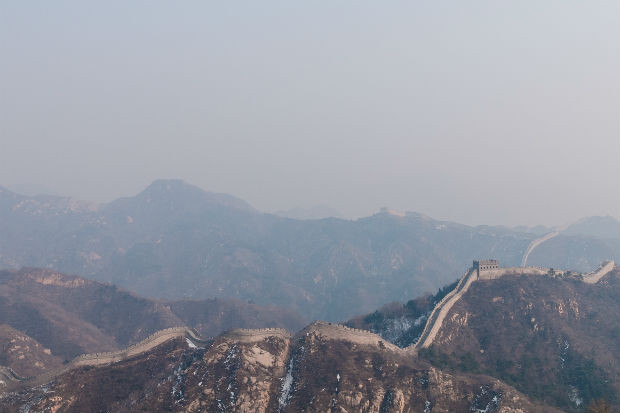Technology and social media advances empower the public in China, but they also empower the censors.
“The art of censorship is becoming more and more sophisticated,” explained Fang Wang, senior duty editor and head of video content at FTChinese.com, speaking at the International Journalism Festival in Italy last week (5 April).
“The mouse and cat game is still ongoing and social media plays a key role in it.”
Wang joined the FT Chinese team about seven years ago. At the festival, she gave insights into how the advancement of technology since then has been used by the Chinese government to control the information accessible in the country.
Back then, she said, the only way of censoring a news outlet was to shut down the website, but gradually the technology developed and allowed the denial of access to certain stories or a particular channel, while keeping the home page of a news outlet online.
Now, if a reader clicks on a story considered sensitive, their IP address could be banned from accessing other stories on that particular website for around seven or eight minutes.
“Most people lose patience. The machine just makes your experience with a certain website very unpleasant and over time you give up visiting the website.”
The so-called Great Firewall is continuously under development. International media organisations such as Bloomberg and The New York Times are blocked in China, and “censorship is something that everyone who works in the media industry in China lives with”.
Most media outlets in China face both pre-print and post-print censorship. The government can issue orders directly to media outlets asking them not to report on certain subjects deemed sensitive, to “take care” of certain commentary pieces or be cautious about reader comments under stories.
For example, when reporting on the inauguration of US president Donald Trump, domestic media organisations in China were ordered not to livestream or produce any picture coverage, and only report on the speech Trump made without any commentary surrounding it.
Other taboo subjects include human rights, ethnic minority issues, and the private wealth of the leaders of the country. Bloomberg and The New York Times were blocked because of their coverage of the private wealth of the then Party Secretary Xi Jinping and Premier Wen Jiabao.
Most of FT Chinese’s rivals have been blocked, and while Wang is not sure exactly why the site is accessible, it could have something to do with the FT’s European origin as opposed to American, as well as its reputation. When travelling abroad, Chinese officials sometimes publish stories in the FT ahead of their official visits.
The media outlet also primarily focuses on economics and finance reporting, giving it a less political tone. “We are less threatening,” said Wang.
Foreign media organisations mainly face post-print censorship, as most use servers physically situated outside the country, explained Wang, and can only be censored through the Great Firewall.
The censorship also extends to social media, and Wang explained the FT Chinese team has noticed different ways the government can control how they distribute their content on WeChat, Weibo, or the Chinese equivalent of question and answer platform Quora.
A first tactic would be to forbid the forwarding of a story and to deny the access to comment sections so readers cannot comment.
For example, FT Chinese could publish a story on Weibo and they could see it appear on their own page, but followers might not be able to see it on their feed – “we sometimes cannot tell”. Stories can also be deleted.
“All state-owned media companies and various government bodies have their own social media accounts through which they can distribute.
“The ultimate weapon is to cancel your account altogether. Social media platforms can’t do anything but to obey.”
Wang discussed the digital media landscape in China alongside Milica Pesic, executive director, Media Diversity Institute; Xin Xin, reader in international communications at the Communication and Media Research Institute at the University of Westminster, London; and Zhang Zhi’an, dean of the School of Communication and Design at Sun Yat-sen University in Guangzhou, China. Watch the full session above.
Free daily newsletter
If you like our news and feature articles, you can sign up to receive our free daily (Mon-Fri) email newsletter (mobile friendly).
Related articles
- Journalists covering the Beijing Winter Games 'should use burner phones and avoid downloading TikTok'
- Yes, we need to regulate Facebook. But how?
- Rusbridger: Facebook needs to be cut some slack on news and regulation
- Where does the buck stop for social platforms when it comes to responsible publishing?
- Ronson Chan, deputy assignment editor of Stand News, on press freedom in Hong Kong












